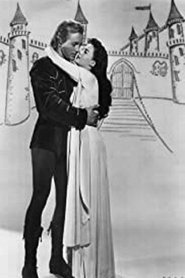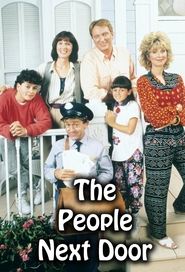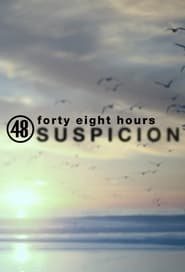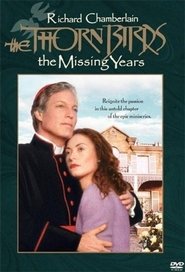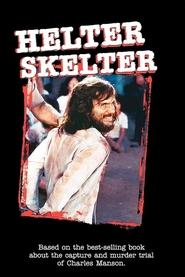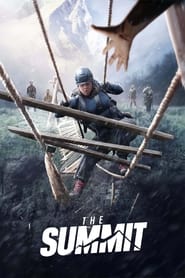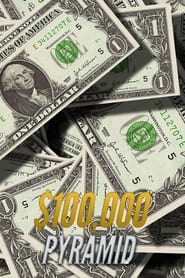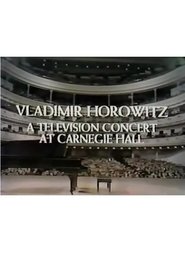Cbs TV Series - Page 62
-
Camera Three
0000
star 7.2Camera Three is an American variety show devoted to the arts. It ran on CBS from January 22, 1956 to January 21, 1979, and moved to PBS in its final year to make way for the then-new CBS News Sunday Morning. The PBS version ran from October 4, 1979 to July 10, 1980. Camera Three featured programs showcasing drama, ballet, art, music, anything involving fine arts. One of its most notable presentations was a condensation of Marc Blitzstein's leftist opera The Cradle Will Rock. Presented on November 29, 1964, it was a dramatic demonstration of how far television had come since its early days, in its willingness to present a work that surely would have been banned from the airwaves during the era of Joseph McCarthy. -
The People Next Door
1989
star 5The People Next Door is an American situation comedy which aired briefly on CBS as part of its Fall 1989 schedule. -
The New Bill Cosby Show
1972
star 5The New Bill Cosby Show is an American variety television series aired in the United States by CBS as part of its 1972-73 lineup. -
Princesses
1991
star 8.5Princesses is a short-lived American situation comedy that aired on CBS in 1991. The series was produced by Universal Television and only lasted five episodes because of low ratings, likely due to direct competition from ABC's Top 30 hit Family Matters and NBC's Top 40 show Matlock. The series also aired in Germany on RTL in 2004. The series theme song, "Someday My Prince Will Come" was written by Frank Churchill and Larry Morey, and was sung by The Roches. -
The Red Buttons Show
1952
The Red Buttons Show
1952
The Red Buttons Show premiered on the CBS television network in 1952, and ran for two years on that network, then moved to NBC for the final 1954-55 season. Red's catch phrase from the show, "Strange things are happening!" entered the national vocabulary briefly in the mid-1950s. -
Stage 7
1955
star 7Stage 7 is the title of a United States TV drama anthology series that aired in 1955. This program premiered in December 1954 with the title Your Favorite Playhouse with all episodes being repeats from other series. The program's 25 episodes showcased the talents of actors and actresses such as Charles Bronson, Edmond O'Brien, Gene Barry, Phyllis Coates, Frances Rafferty, Macdonald Carey, and Phyllis Thaxter. Some directing was done by Quinn Martin. -
People Are Talking
1978
People Are Talking
1978
"People Are Talking" is a show that airs locally on CBS affiliate WJZ-TV in Baltimore, Maryland. The show began in August 1978 with Oprah Winfrey and Richard Sher as the original co-hosts. Oprah was co-host from 1978 to 1983, and Richard co-hosted for several years beyond that. -
Armed & Famous
2007
star 2Armed & Famous is an American reality television series that premiered January 10, 2007, on CBS. First-run episodes were also aired on VH1 in the United States. After the first episode aired, CBS moved the show into a time slot opposite American Idol on FOX. After four episodes, the show was pulled from the network on January 26, 2007 with broadcast rights for the series shifted to VH1. All six episodes of the series aired on VH1, including two previously unaired episodes from the original CBS run. -
The Briefcase
2015
star 1THE BRIEFCASE features hard-working American families experiencing financial setbacks who are presented with a briefcase containing a large sum of money and a potentially life-altering decision: they can keep all of the money for themselves, or give all or part of it to another family in need. -
48 Hours Suspicion
2020
48 Hours Suspicion
2020
48 Hours: Suspicion is a limited-run series from the team at CBS News' award-winning true-crime series 48 Hours. The series features intriguing cases where people live under suspicion, but the truth is often elusive. -
Reporter
1964
star 5The Reporter is an American drama series that aired on CBS from September 25 to December 18, 1964. The series was created by Jerome Weidman and developed by executive producers Keefe Brasselle and John Simon. -
The Goldbergs
1949
star 7.5The Goldbergs is a comedy-drama broadcast from 1929 to 1946 on American radio, and from 1949 to 1956 on American television. It was adapted into a 1948 play, Me and Molly, a 1950 film The Goldbergs, and a 1973 Broadway musical, Molly. -
1775
1992
1775
1992
1775 was a 1992 pilot episode for a CBS situation comedy, similar in style to the BBC situation comedy Blackadder. Set in colonial Philadelphia during the run-up to the American Revolution, the series was to follow the exploits of innkeeper Jeremy Proctor and his family. The series was not picked up by CBS. A similar idea for a situation comedy was mentioned by Andrew Alexander in a commentary track for SCTV. -
There Goes the Neighborhood
2009
There Goes the Neighborhood is an American prime-time reality television program on CBS. The show premiered on August 9, 2009, and features eight suburban families shut out from the outside world with no television, internet, phones, or contact with anybody outside of their neighborhood. The families will compete in challenges against each other. Each week, one family will be banished from the neighborhood, thereby eliminating the family from contention for the show's $250,000 prize fund. The show's executive producers are Jay Bienstock and Mike Fleiss. The show's presenter is Matt Rogers, a finalist on American Idol 3. -
The Thorn Birds: The Missing Years
1996
star 7The story of the 19 years that are unaccounted for between the birth of Dane and Ralph's return to Australia in the original miniseries. -
Helter Skelter
1976
star 7The investigation of two horrific mass murders leads to the capture and trial of the psychotic pseudo-hippie Charles Manson and his "family". -
The Summit
2024
star 7.3THE SUMMIT, hosted by Manu Bennett, follows 16 strangers embarking on a once-in-a-lifetime journey through the treacherous New Zealand Alps in an attempt to reach the peak of a distant, towering mountain. With their backpacks containing an equal share of $1 million, the group must traverse an exhausting distance in just 14 days in order to win the cash they are carrying. But not everyone will make it, as these strangers must work together to tackle the dangerous terrain, unforgiving Antarctic winds, heart-pounding challenges and gut-wrenching eliminations on their way to the peak. Tracking them along this journey is the "Mountain's Keeper" who will surprise the trekkers with brutal twists and force decisions that complicate an already grueling ascent. Morals and relationships will be tested when they must decide what to do if someone falls behind - because if the group fails to reach THE SUMMIT in time, all the prize money will be lost. -
Two for the Money
1952
Two for the Money
1952
Two for the Money is an American game show television program which ran from 1952 to 1957. The show ran for one season on NBC, and four seasons on CBS. It was a Mark Goodson-Bill Todman production, and was initially sponsored by Old Gold cigarettes. Humorist Herb Shriner was the host for most of the show's run, with fellow humorist Sam Levenson hosting the last season. -
Pyramid
0000
star 6Pyramid is an American television game show that has aired several versions. The original series, The $10,000 Pyramid, debuted March 26, 1973, and spawned seven subsequent Pyramid series. The game featured two contestants, each paired with a celebrity. Players attempt to guess a series of words or phrases based on descriptions given to them by their teammates. The title refers to the show's pyramid-shaped gameboard, featuring six categories arranged in a triangular fashion. The various Pyramid series won a total of nine Daytime Emmys for Outstanding Game Show, second only to Jeopardy!, which has won thirteen. Dick Clark is the host most commonly associated with the show, having hosted every incarnation from 1973–88, save for a 1974–79 syndicated version, The $25,000 Pyramid, hosted by Bill Cullen. John Davidson hosted a 1991-92 version of The $100,000 Pyramid, and another version, simply titled Pyramid, ran from 2002–04 with Donny Osmond as host. A new version titled The Pyramid premiered Septem -
Vladimir Horowitz: A Television Concert at Carnegie Hall
1968
Celebrated American pianist Vladimir Horowitz in his first televised piano recital, taped at Carnegie Hall on February 1, 1968, and broadcast nationwide by CBS on September 22 of that year.
